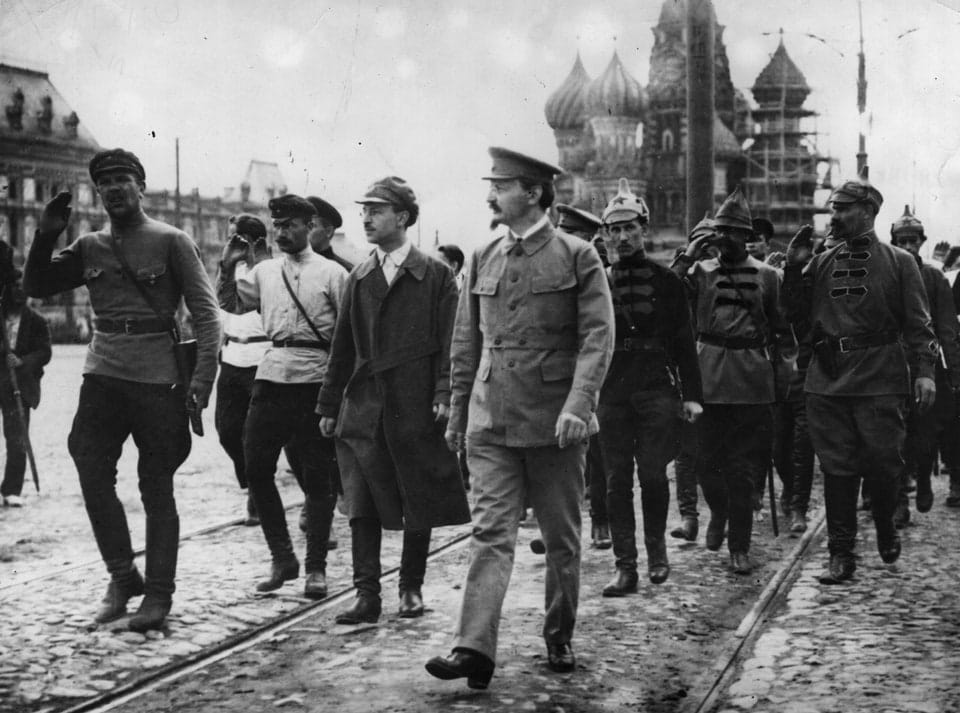The relevance of the Russian Revolution

Author Name: Dibyajit Mukherjee
Bio Note: Mr. Dibyajit Mukherjee, currently posted at the Department of English of Prabhat Kumar College, Contai as an Assistant Professor of English. A recipient of the Prof. SN Basu gold medal from Gurudas College in Kolkata from where he graduated, he has been awarded the M.A and M. Phil degrees in English from Calcutta University and is presently pursuing his
Ph.D. from Rabindra Bharati University. He has written three books namely Amiri Baraka:
Art and Struggle, Troika: Three Essays on Trotsky and The Tongue of Light in Fits of Flames
which is book on poetry.
 Mr.Dibyajit Mukherjee
Mr.Dibyajit Mukherjee“If I had not seen it with my own eyes, I could have never believed that in just ten years they have not only led hundreds of thousands of people out of the darkness of ignorance and degradation and taught them to read and write, but also fostered in them a sense of human dignity. We need to come here specifically to study the organisation of education”-Rabindranath Tagore (Letters from Russia).
The Russian Revolution of 1917 was perhaps the most important event in the history of human society. As this was the first time, if one kept aside the brief period of the victorious Paris Commune of 1871, that the enslaved class had successfully managed to overthrow their oppressors and taken the initial steps for the construction of a socialist society. There were two revolutions in the year 1917-
one was a spontaneous uprising from the factory workers who were living a wretched existence due to war and lack of food, which ended the 300 years of Tzarist tyranny and the second was a revolution against the provisional Government of Kerensky by the Bolsheviks, led by the Military Revolutionary Committee of Leon Trotsky.
The Revolution in Russia that overthrew the Tzars and later the provisional government had its dress rehearsal in 1905 when the white snow of Russia had turned red after the Cossacks opened fire on the workers and peasants who were making a peaceful demonstration led by a priest named Father Gapon demanding food and clothing; by the order of the Tzar. This macabre massacre, heinous and tyrannical in its structure triggered nationwide protests and soldier mutinies leading to the creation of the St. Petersburg Soviet or workers’ council. In February, the revolution started by the women workers in factories and it finally culminated in the upheaval of Tzarism from Russia. It was Lenin, who had then arrived in the month of April and then guided the workers with the inspirational slogan of “All Power to the Soviets” including peace, bread, and land.
This revolution had managed to send shock waves across the globe. No sooner than the new working-class state had formed it attacked by 21 countries of bourgeois hegemony who were scared that the workers had managed to take political power. Interestingly, the 21 countries were not able to do anything due to the brilliant resistance shown by the newly created red army by Trotsky which was not a standing army but militia based. When David Llyod George, the then Prime Minister of the United Kingdom questioned in parliament as to why he gave orders of calling back the army from Russia, the latter replied that he had to do so as his army was suffering from Bolshevik influenza.
By this intriguing term, he was referring to the fact that the army was being attracted to the Marxist ideas of the Red Army since they too were working class people. The achievements of the Russian Revolution were the following:
- women allowed the right to vote and play an active role in politics for the first time in the world
- homosexuality decriminalised
- workers were in control of the factories
- Education was free
- Healthcare was free
- Unemployment was nil


- Art
- Causes
- Best Offers
- Crafts
- Dance
- Drinks
- Film
- Fitness
- Food
- Games
- Festival
- Gardening
- Health
- Home
- Literature
- Music
- Networking
- Other
- Party
- Religion
- Shopping
- Sports
- Theater
- Wellness



